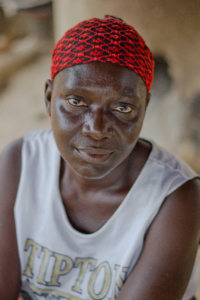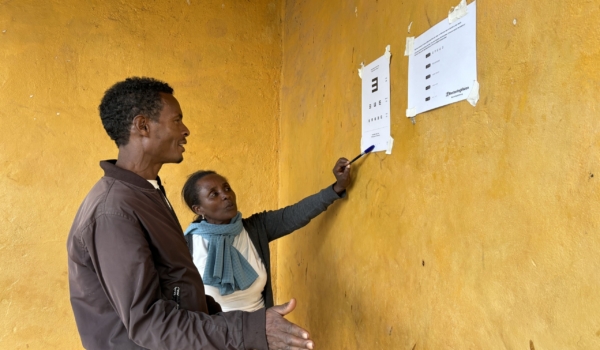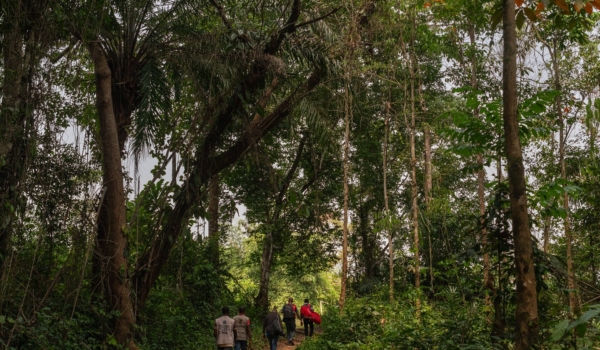Over the past year, Last Mile Health’s Community Health Workers (CHWs) treated a total of 21,728 cases of malaria, diarrhea, or acute respiratory infection in children under age five. The following story of a pair of twins from Rivercess County offers just one example of the impact that paid, supervised CHWs integrated into the health system, are having in Liberia’s last mile communities.
April 19, 2016
It is a hot, humid afternoon in the thick of Liberia’s dry season and Clinical Supervisor Rachel Wollor smiles as she looks down at the baby gurgling and squealing playfully in her lap. Nearby, the girl’s twin sister relaxes in their mother’s arms.
Earlier in the day, the twins’ mother brought the young girls to the home of CHW Musu Johnson and explained their concerning symptoms. Observing “no-touch” patient care protocol in light of the ongoing risk of Ebola transmission, Musu noted the mother’s report of high fever and “running stomach” and diagnosed both girls with malaria and diarrhea. Consulting her job aid chart for proper dosing instructions, she promptly administered the first dose of treatment: an anti-malaria drug called ACT to begin eliminating the parasites from the girls’ bloodstreams, paracetamol to bring down their fever, and oral rehydration salts and zinc to replace lost fluids.
Both girls are already recovering.
Rachel, a Registered Nurse who visits Musu on a monthly basis to provide coaching and mentorship, takes this opportunity to study Musu’s record of the girls’ symptoms. Based on her own conversation with the mother, Rachel confirms that the girls have been given the proper diagnosis and treatment and walks Musu through a list of danger signs to ensure that no worrisome symptoms have been overlooked.
Thankfully, the twins are not presenting any of the symptoms that would require immediate referral to the nearest health facility for more advanced care. Still, Musu will follow up on the twins every day for the next three days to ensure that their mother is correctly administering the prescribed medications. She will also monitor the girls for seizures, prolonged fever, or other danger signs that would trigger a referral.
“When I see any sick person at all, the sorrow comes to me,” says Musu of her decision to become a CHW with Last Mile Health. Having previously served as a community health volunteer under the Liberia Ministry of Health and later as Chairwoman of her local Community Health Committee, Musu was selected by her community to attend Last Mile Health’s Ebola response training during the outbreak, and she played a key role in keeping her community safe. In the months that followed the crisis, Musu’s neighbors recognized her leadership and dedication by nominating her to serve as their CHW.
Helping children to survive and thrive has motivated Musu’s longstanding commitment to caregiving, and the satisfaction that comes with no longer seeing children die of treatable illnesses provides sustained inspiration. As her peer supervisor Albert Johnson observes, Musu’s role in treating patients and educating the community about preventing childhood illness has already had an impact. “Before [Last Mile Health came] we used to hear about the death rate of children under five in the community,” Albert reflects. “Sometimes in a month’s time, two or three children would die in one community. But since we started this work here… Whenever the children are sick, our [CHWs] are there to treat them and give them good medicine.”





